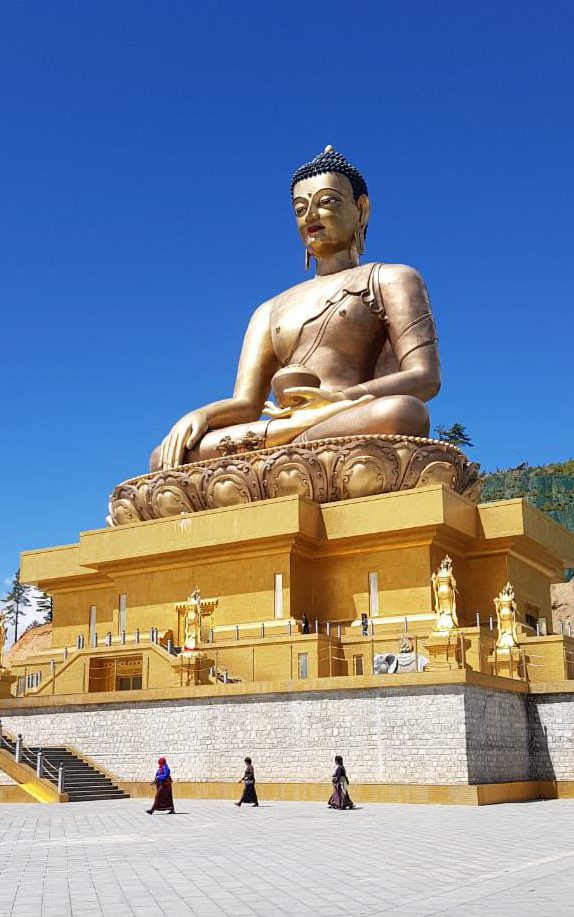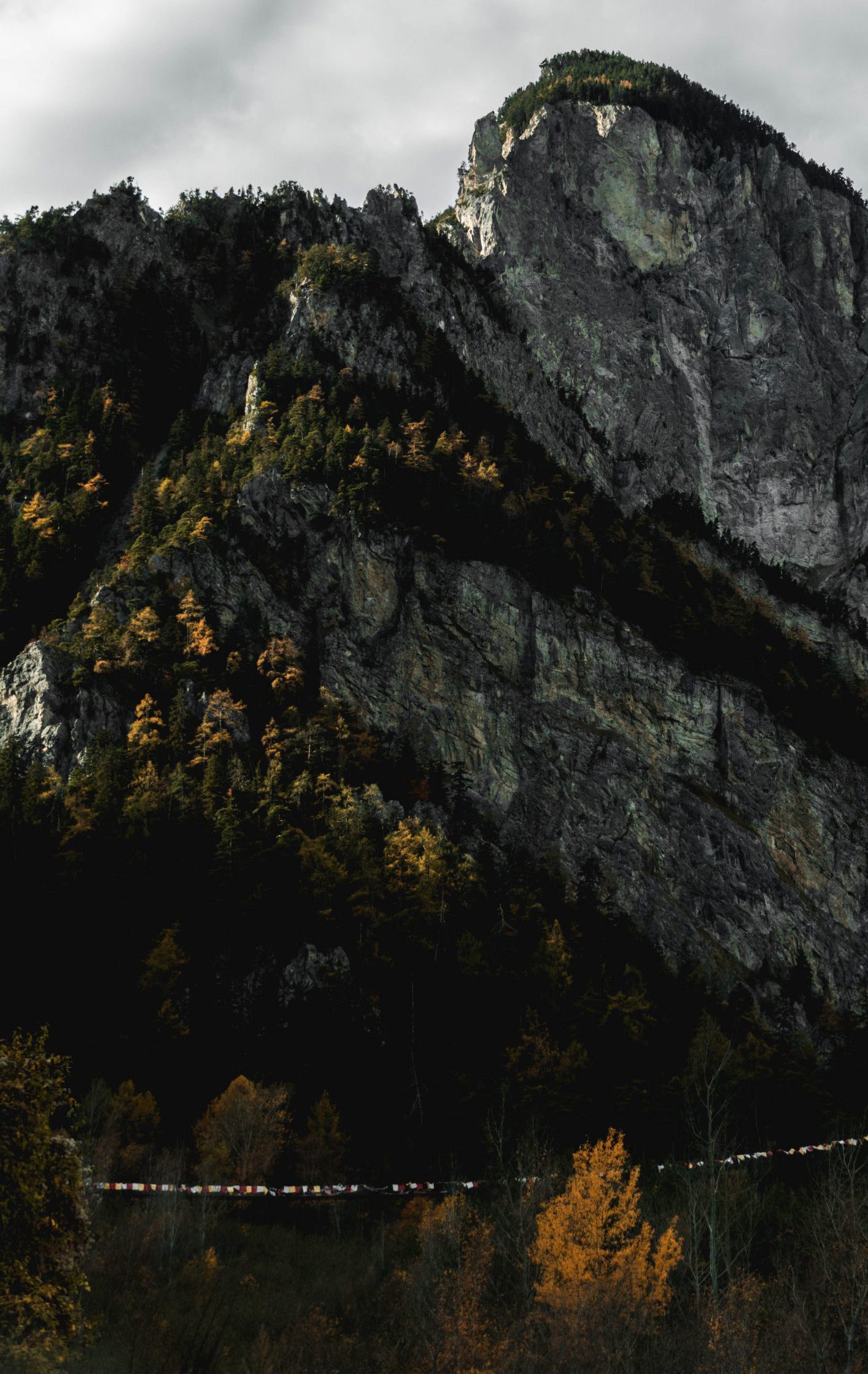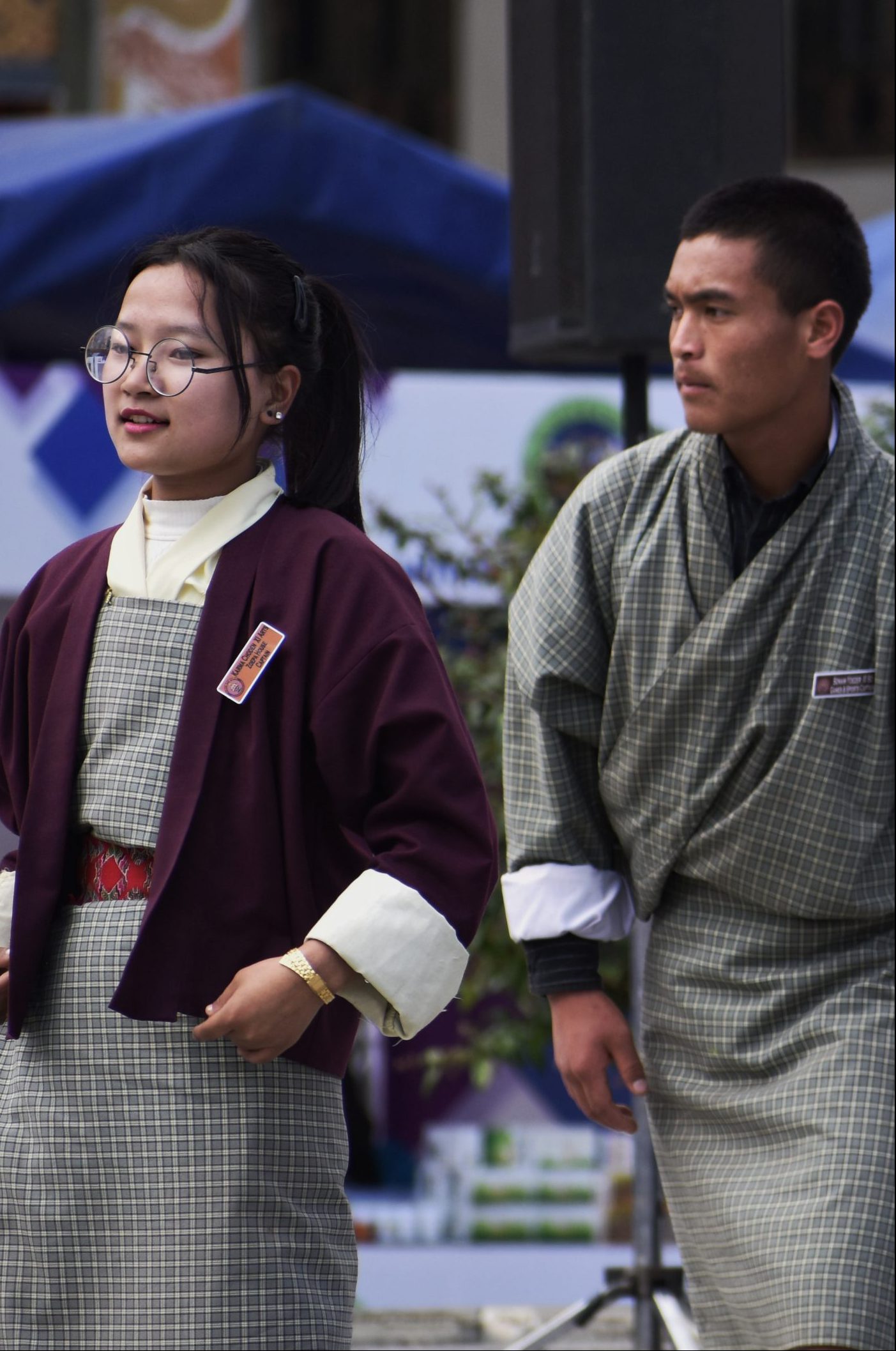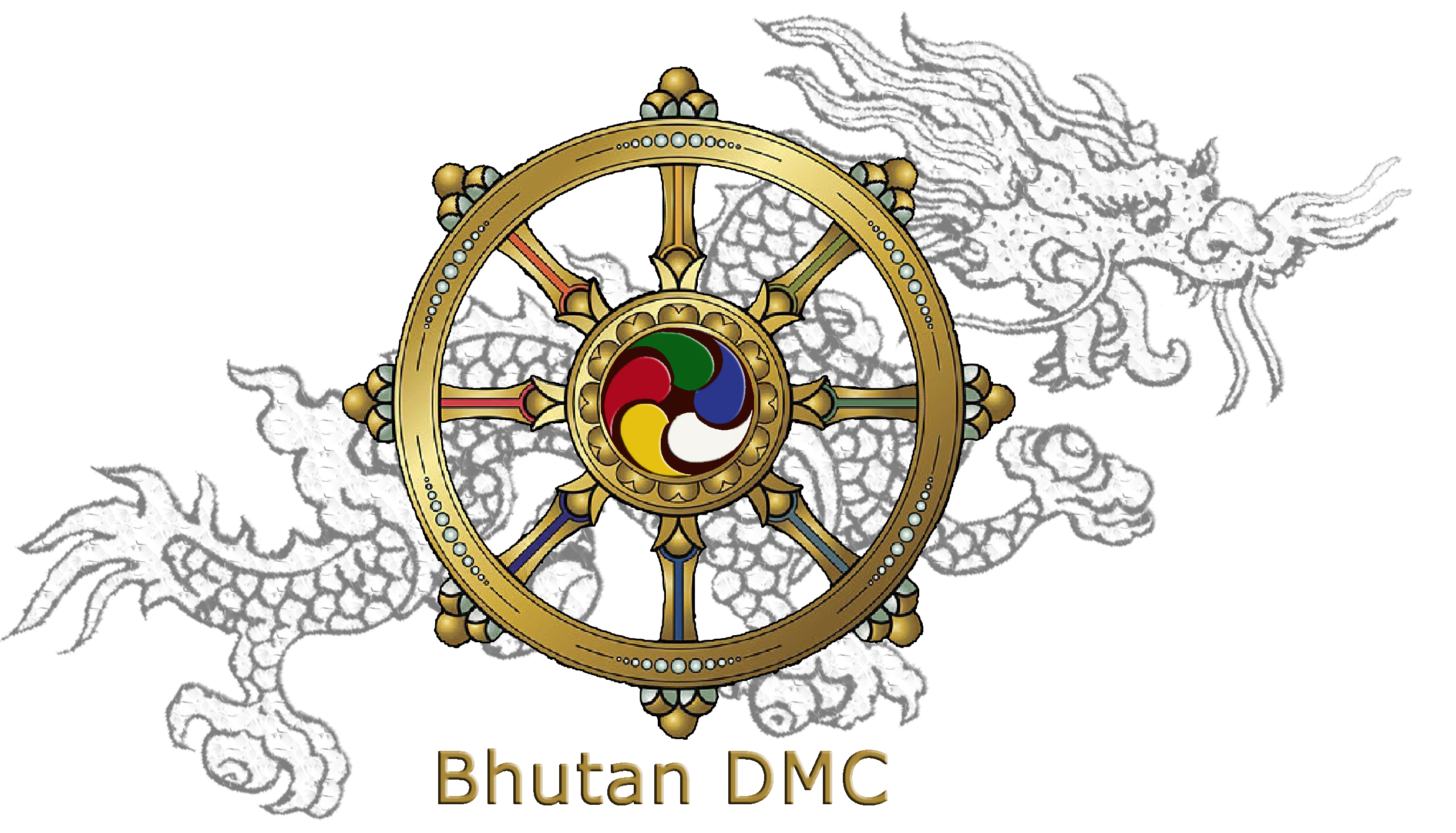Past and Present
Bhutan has evolved from a feudal society that was sparsely scattered over the rugged mountain terrain, to a polity governed jointly by the clergy and civil administration, to a progressive farming society in a relatively short time. The Land of the Thunder Dragon entered the new millennium with a modern bureaucracy trying to resist being completely overwhelmed by the forces of globalisation.

Until the 20th century the leadership of the country was mostly mythological figures. The eight-century saint, Guru Rinpoche, introduced the Buddhist culture that still binds society today, and Zhabdrung Ngawang Namgyal established the notion of nationhood in the 17th century. The establishment of hereditary monarchy in 1907 established Bhutanese history as it is best known.
The first two Kings, Sir Ugyen Wangchuk and His Late Majesty Jigme Wangchuk, consolidated the nation under an absolute monarchy with a traditional hierarchical culture of governance. The Kings ruled the people directly from the Royal court and the largely rural society developed along the relationship between the King and the people, the King’s responsibility being to look after the people and the people owing him their reverence.
The third King introduced the concept of modernization in the 1950s and began formal process of planned modernization in 1961. India became the main supporter and Bhutan gradually opened up to the world by establishing links with United Nations in 1972 and, eventually, 21 other countries.
The fourth King of Bhutan, Jigme Singye Wangchuk, took over in 1972 and accelerated the development process. The country saw phenomenal achievements as it built roads and bridges, schools and hospitals, telecommunication and power infrastructure.
The Land of the Thunder Dragon now stands on the threshold of historic change as the traditional monarchy makes a dramatic transition into a democratic constitutional monarchy. Society is being restructured to respond to new policies and a nation ruled by modern laws. Throughout this process of evolution, however, Bhutan is determined to be guided by the values and priorities that have helped it to remain a unique country in a rapidly changing world.
Bhutan is a unique land in a unique time. Having survived the centuries by maintaining a distinct identity, the Kingdom hopes to face the future by drawing on its past.
The country took a momentous step in 2008 and made the transition from a hundred-year-old monarchy to parliamentary democracy. Bhutan is described today as the youngest democracy in the world. Its political transition from monarchy to democratic government was formalized in a unique ceremony in the capital, Thimphu, on 18th August 2008, when the King and representatives of the people signed the country’s first written constitution.
Bhutan’s democracy is a legacy of the Fourth King, Jigme Singye Wangchuck. His Majesty the King introduced the concept of decentralization during three decades of his reign and, after achieving dramatic progress in economic development, introduced the concept of democracy to prepare Bhutan’s political system for the future. Bhutan’s transition to democracy has been an unprecedented model in many ways.
His Majesty King took over the mandate of the state in December 2006 from his father, the Fourth King of Bhutan, His Majesty Jigme Singye Wangchuck. The coronation of His Majesty the Fifth King of Bhutan took place in November 2008 in a sacred ceremony followed by nation-wide festivities as Bhutan and its people celebrated 100 years of phenomenal growth under the Wangchuck dynasty.


Bhutan knows that to leap into a new page in history will not be easy. That is why the Kingdom stresses, more than ever before, the need to maintain its pristine environment, its rich culture, and a sacred heritage that influences the daily lifestyle of the people.
That is why Bhutan is a different world today. The majestic snow-capped peaks are unclimbed because they are considered an abode of gods; the forest cover is rich because the people see plants and animals as important life forms. The people consider their unique identity their strength.
Like the country’s clear sighted ‘high value low volume’ tourism policy, modernization is carefully planned and controlled to avoid the ravages of material development. The priorities are cautiously mapped so that progress is a balance between tradition and modernity.
All this is conveyed in a development philosophy inspired by Fourth King Jigme Singye Wangchuck and known as ‘Gross National happiness’. Drawn from the teachings of Buddhism, Gross National Happiness is a profound message to the world today, a world where people are said to have lost their souls in chase for material comfort.
